Alcohol and Aging
This webpage and associated flyer provide information about low risk drinking for older adults.– Government of British Columbia
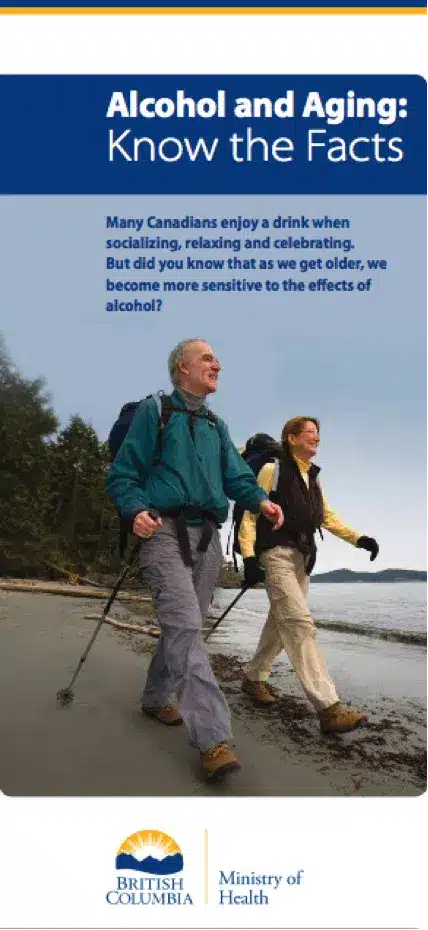
This webpage and associated flyer provide information about low risk drinking for older adults.– Government of British Columbia
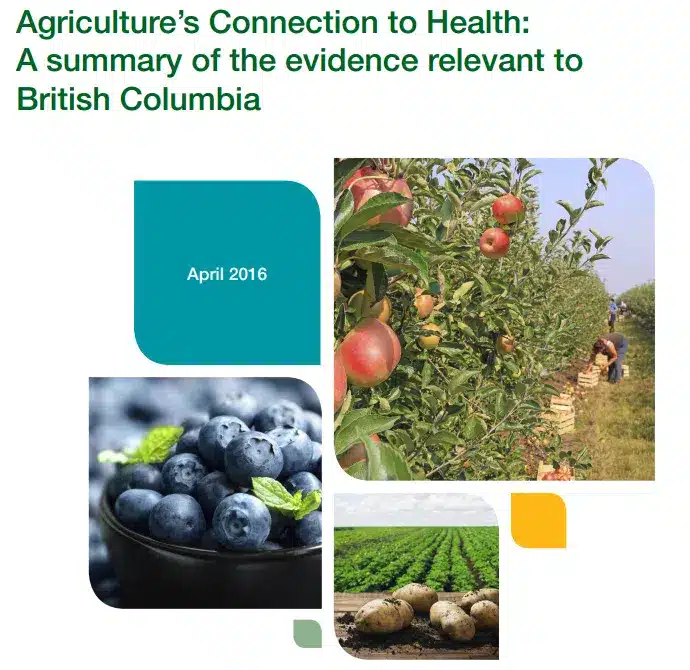
The purpose of this document is to present the evidence on associations between agriculture and health.The relationship between agriculture and human health in British Columbia (BC) is complex and multifaceted. The availability of healthy food is an important determinant of health, but only one of many connections between agriculture and health. Agriculture influences food choices…

Provides information on reporting, specialized studies, plans, and resident engagement.– Metro Vancouver
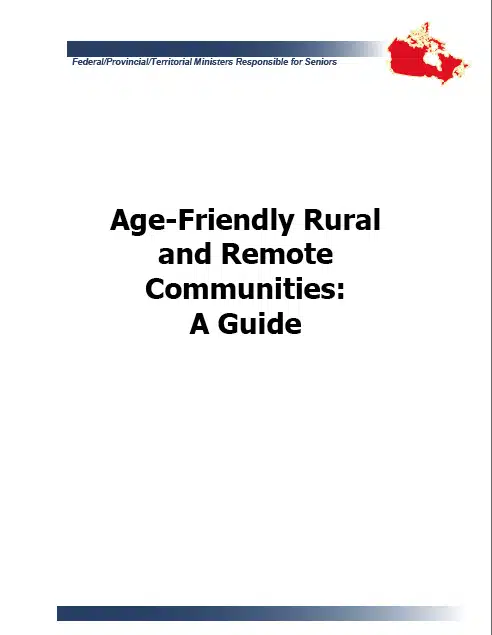
A version of the Global Age-Friendly Cities: A Guide adapted to the considerations of rural and remote communities, developed using input from seniors in ten rural and/or remote communities in Canada, including two in British Columbia (Alert Bay and Lumby).– Federal/Provincial/Territorial Ministers Responsible for Seniors
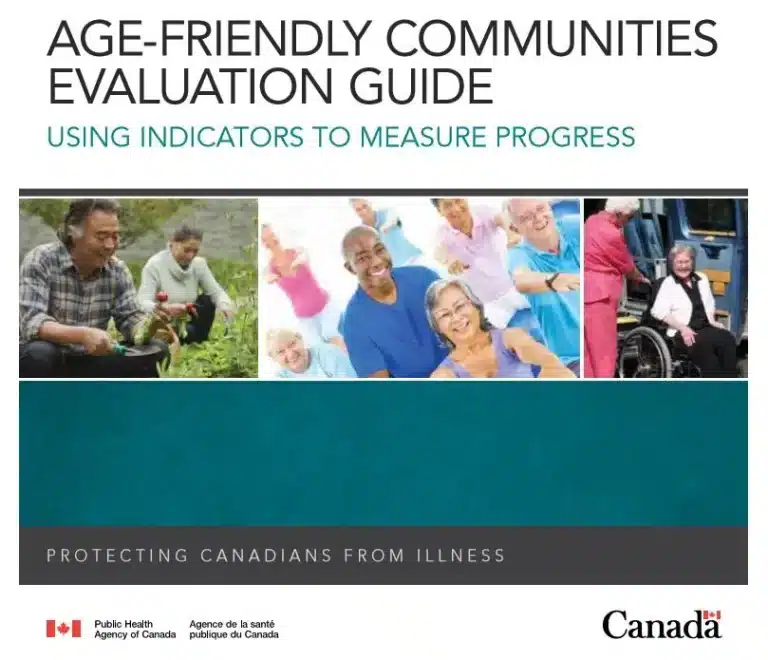
A new publication by the Public Health Agency of Canada is a fantastic tool to help build and evalute age-friendly healthy built environments.
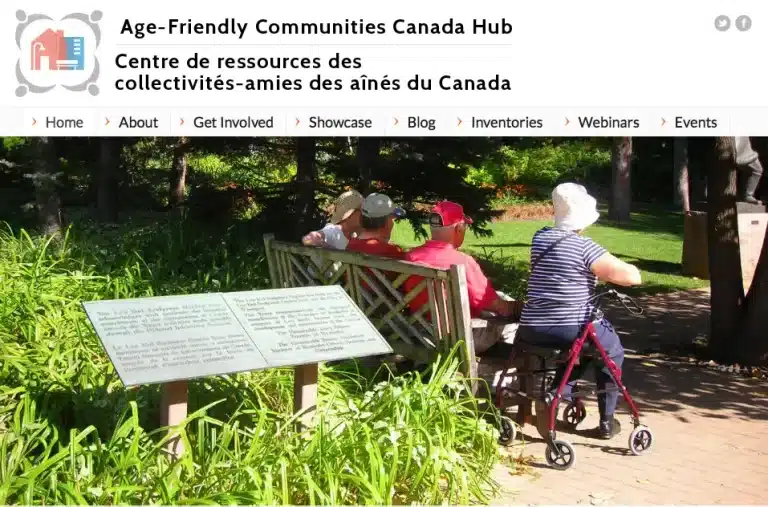
Designed to bring together all those interested in age-friendly communities in Canada. Sections on new knowledge, networks, research, policy and practice.– Age-Friendly Communities Canada Hub
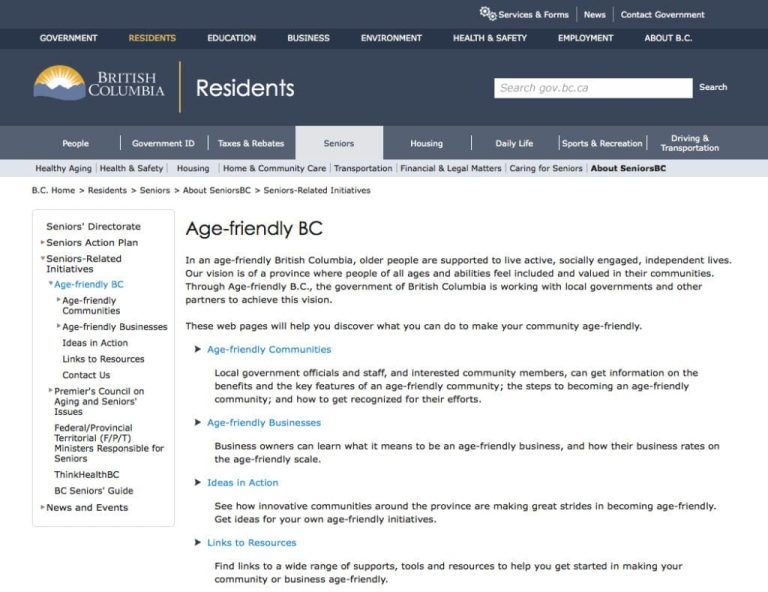
Provides information on how communities and businesses can become age-friendly, and summaries of age-friendly community action examples in Revelstoke, Saanich, and West Vancouver.– Province of BC
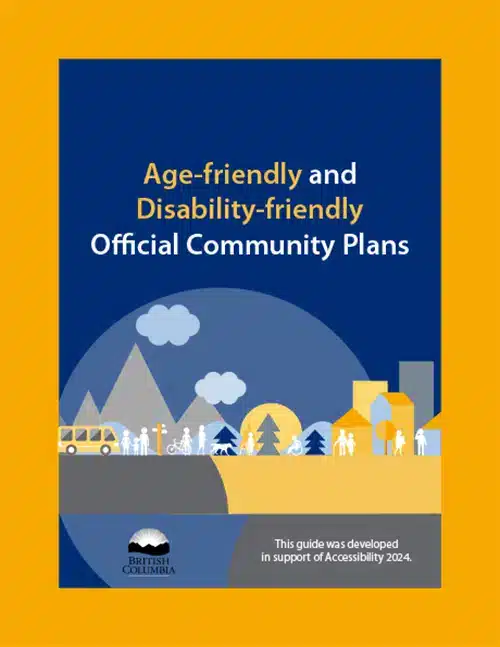
Age-friendly and disability-friendly OCPs can make it easier for seniors and people with disabilities and health and activity limitations (including mobility, visual, hearing and cognitive impairments and mental health challenges) to move around their communities and participate in all aspects of community life – economic, social, recreational and cultural – through improved planning, design, and service provision. The…
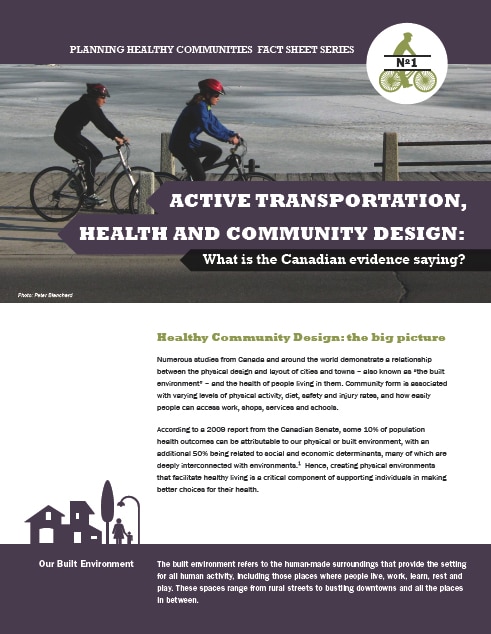
Succinct fact sheet based on a review of recent evidence in Canada.– Canadian Institute of Planners

CAPE (Canadian Association for Physicians for the Environment) has released a new toolkit to help health professionals become advocates of active transportation and transit with their patients and in their communities. The toolkit is designed with five stand-alone modules so people can focus on the ones of most interest to them. The toolkit also includes…